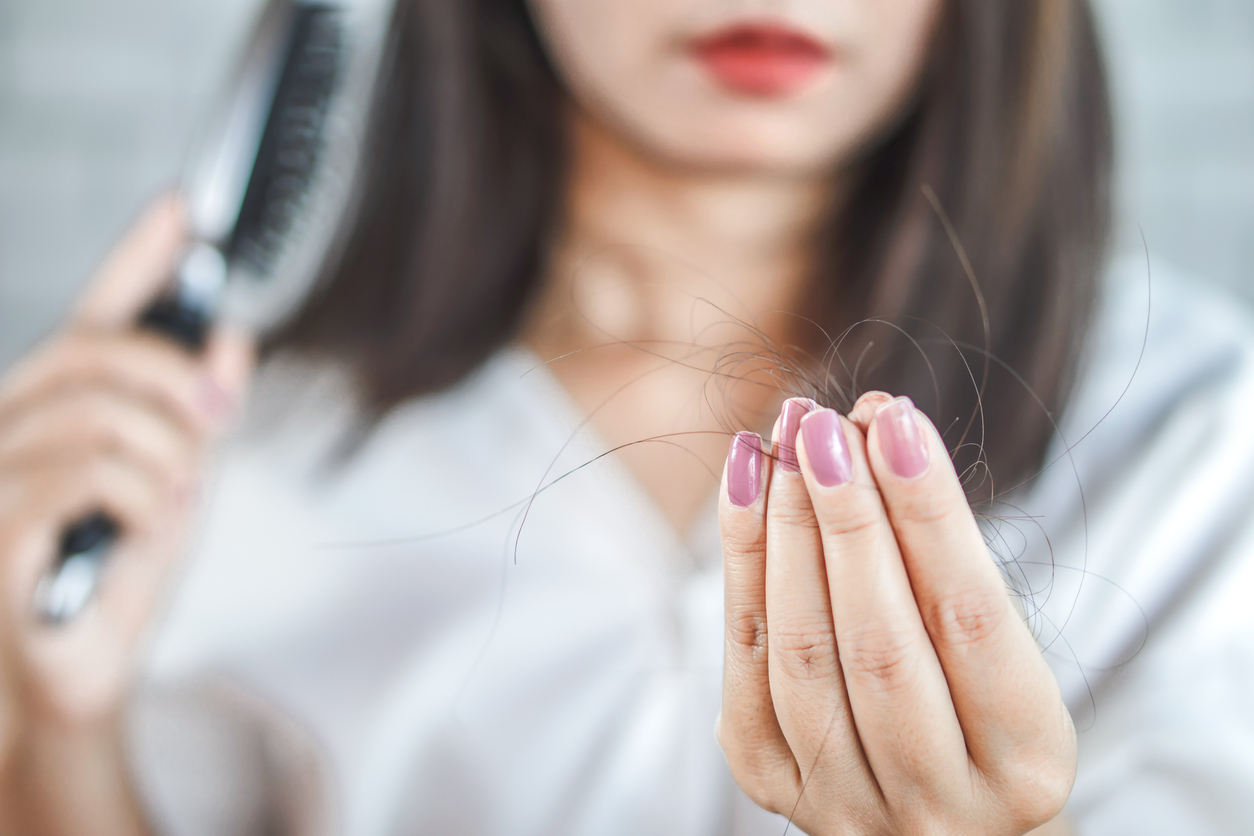[ad_1]
Motherhood is life changing. While it gives new meaning to life, it also brings significant changes to a woman’s body – hair fall being one such concern. It starts subtly; but over time, the more you brush, the more hair gets stuck to the comb. And suddenly, it feels like your hair parting has got wider. If you are a new mom and struggling with hair loss, then trust us, you are not alone. Postpartum hair fall is common, often peaking around three to four months after delivery. All you need to do is wait for some time and have enough nutrients to control the situation.
Also Read: How To Make Panjiri For Postpartum Recovery – Nutritionist Shares Her Go-To Recipe
What Causes Postpartum Hair Loss?
The main culprit for the post-partum hair fall is the change of hormones and nutrient levels in the body. Nutritionist Lovneet Batra states that during pregnancy, a woman’s body is depleted of its iron, vitamin D, omega-3 stores. Alongside, the protein needs in your body increases post-delivery. The imbalance of all these nutrients in the body together act as a hidden but powerful trigger behind postpartum hair loss
Stress and sleep deprivation post childbirth naturally drops the estrogen levels in the body, which also play a major role in post-partum hair fall.
Also Read: How Diet May Help New Mothers Combat Postpartum Brain Fog

Image Credit: iStock
What Is The Biggest Mistake Mothers Make While Combating Postpartum Hair Fall?
Lovneet Batra states that the biggest mistake many new mothers make is “only focusing on biotin”. While biotin is an important nutrient for good hair health, it alone can’t make up for low estrogen levels, imbalance of nutrients, stress and sleep deprivation. So, the expert suggests having wholesome nutrition to control the hair fall.
Here Are The 5 Nutrients For Postpartum Hair Regrowth
Nutritionist Lovneet Batra took to Instagram to break down the nutrients that play a starring role in hair health:
1. Protein:
Why it matters: The expert states that protein is the “building block of hair”. Without enough protein, hair becomes weak and becomes more prone to falling out. “Many new moms don’t get enough protein. Aim for 80-100grams daily for stronger, healthier strands,” she explains.
Natural sources of protein: Eggs, lentils, beans, nuts, yogurt and chicken or lean meat.
2. Iron:
Why it matters: Iron carries oxygen to cells, including hair follicles. Post partum bleeding and sleepless nights after childbirth often lead to depleted iron in the body, which can lead to excessive shedding and even chronic thinning of hair.
Natural sources of iron: Spinach, red meat, pumpkin seeds, amla, dal, rajma, and whole grains.
3. Zinc:
Why it matters: Zinc supports tissue repair and helps keep the oil glands around hair follicles functioning properly. Low levels have been directly linked to hair loss.
Natural sources of zinc: Chickpeas, cashew nuts, oats and seafood.
4. Vitamin D:
Why it matters: Vitamin D plays a role in creating new hair follicles and maintaining the hair growth cycle. Deficiency can lead to stalled growth and increased shedding. Sunlight is the best source of vitamin D, but you can also get it in various types of foods.
Natural sources of vitamin D: Fatty fish, egg yolks, and mushrooms.
5. Biotin:
Why it matters: Biotin (vitamin B7) boosts keratin production, which plays a crucial in hair growth.
Natural sources of biotin: Eggs, dairy, leafy greens, whole grains, fish, and meat.
Also Read: 7 Smart And Healthy Eating Hacks For New Mothers At Work
The Bottom Line:
According to Lovneet Batra, “Hair fall isn’t just a biotin issue – it is a nutrition issue. Fuel your body right, and your hair will thank you!” Alongside, hydrate yourself well and try for proper rest to combat postpartum hair fall. And always remember, balance is the key!
[ad_2]
Source link



